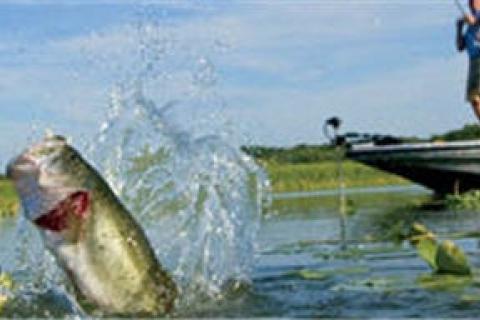
 |
| Follow good fishing courtesies. |
Every sport comes with its own unique code of etiquette—whether it’s written or unwritten. No golfer would ever dream of disrupting another golfer’s lie. In tennis, no spectator would yell as a player readies their serve.
When it comes to fishing, there are an array of common courtesies and conventions that you should follow, too. Here are six you should keep in mind the next time you’re on the water.
Do clean up after yourself.
The old Boy Scout rule works in fishing, too: Always leave the bank, river, pond or lake better than the way you found it. No one likes to discover a recently used fishing site strewn with empty beer cans or abandoned casting line.
Don’t crowd other boats.
If you see a fellow angler having success on a certain patch of water, don’t navigate your boat closer to them. As you pass through the other angler’s water, the wake from your boat can foil his or her fishing, driving potential catches away for both of you.
Do give your fellow fisherman some space.
Instead of cozying up to an angler who is reeling them in, give them an approximately 200-yard berth, says fishing expert and writer Erik Landesfeind.
For more on this subject, check out the article "Fishing Small Waters" by Jimmy Houston.
Don’t cross another angler’s line.
When fishing quarters are tight, don’t cast over or under the angler next to you. This can be especially challenging when you’re fishing from the bank or shore.
Do observe regulations and catch limits.
If you’re fishing in a region or waterway that posts particular regulations, pay close attention to them. Pennsylvania’s Fish and Boat Commission banned fishing for smallmouth bass before June, for example. States such as Alabama only allow you to catch 10 black bass a year. Regulations like these are designed to protect and preserve excellent fishing conditions for everyone.
Don’t get caught without a fishing license.
It may sound like common sense, but every angler 16 years old and older must have a valid fishing license nationwide. And there’s no fishing license that is valid in all 50 states.
Typically, a fishing license costs a fraction of the amount of a potential fine. So, if you’re planning an out-of-state fishing trip, plan to get your license ahead of time from the relevant state’s fish and wildlife agency (you can find a directory of all 50 of them here).
Do have the right fishing equipment.
Make sure you've got the right gear for all types of fishing and all species. Visit Bass Pro Shops to check out our great selection of gear, and to get all your gear questions answered.
Do understand fishing terminology.
You know how to walk the walk ... now talk the talk! Get to know the language that fishermen use by taking a moment to read through this Fishing Terminology guide.
Happy fishing!
- 14098 views

